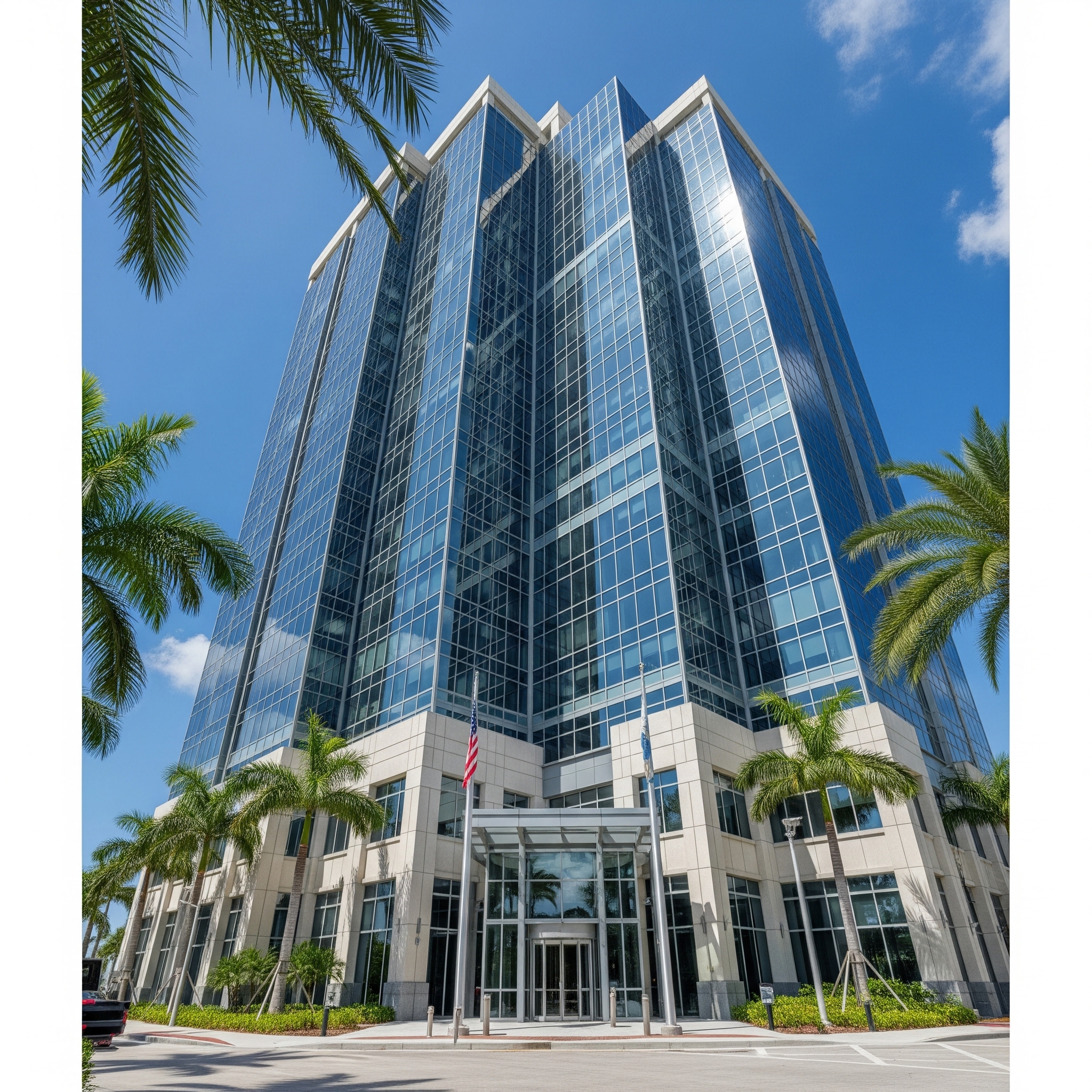Florida’s commercial real estate market has long been a magnet for investors, thanks to its dynamic economy, strong population growth, and favorable tax environment. Whether you’re a seasoned investor or new to the CRE scene, deciding between investing in retail or office space can be a pivotal choice. Each asset class offers distinct opportunities, but they come with their own sets of risks, market trends, and considerations.
This article will break down the pros and cons of investing in retail and office space in Florida, highlighting key market trends and factors to consider. Additionally, we’ll explore why partnering with Steinbauer Associates, a leading commercial real estate firm with deep local expertise, can help you make the best investment decision for your portfolio.
Understanding the Florida Commercial Real Estate Landscape
Before diving into retail vs. office space, it’s important to understand what makes Florida such a strong market for CRE investment. The state’s favorable business climate, low taxes, and steady population growth continue to fuel demand for both retail and office properties. Moreover, the rise of e-commerce, shifting work patterns, and changing consumer preferences are influencing demand across both asset classes.
While both retail and office spaces can be lucrative investments, the right choice for you depends on your risk tolerance, investment goals, and market outlook. Let’s take a closer look at the two options.
Retail Space: Pros, Cons, and Market Trends

Pros of Investing in Retail Space
- Strong Demand from Tourism and Population Growth: Florida’s thriving tourism industry, combined with a steady influx of new residents, supports a robust demand for retail spaces in high-traffic areas. Regions like Orlando, Miami, and Tampa are home to busy shopping districts, retail centers, and lifestyle destinations that cater to both locals and tourists.
- High Tenant Diversification: Retail properties often feature multiple tenants (in the form of shopping centers or strip malls), reducing the risk associated with relying on a single tenant for income. Even in single-tenant properties like standalone retail stores or big-box locations, long-term leases with national or regional brands can provide consistent, reliable cash flow.
- Consumer-Focused Leasing Structures: Many retail leases, such as triple-net (NNN) leases, require tenants to cover property expenses like maintenance, insurance, and taxes. This can reduce the landlord’s operating costs and increase net operating income (NOI).
Cons of Investing in Retail Space
- Impact of E-Commerce: The rise of e-commerce has transformed the retail landscape, reducing foot traffic in traditional brick-and-mortar stores. Retailers are increasingly shifting toward omnichannel models, blending online and physical retail, which can affect demand for certain types of retail spaces.
- Tenant Turnover Risk: Retail is sensitive to economic cycles, and businesses can face challenges during downturns. High turnover rates, particularly for small or local businesses, can result in increased vacancy and leasing risks for landlords.
- Location Dependency: The success of retail investments is heavily dependent on location. Properties in high-traffic areas like tourist districts, shopping centers, and urban cores are more likely to perform well, while retail in less desirable or declining areas may struggle.
Market Trends in Florida Retail Real Estate
Florida’s retail market has shown resilience, particularly in areas that cater to tourism, entertainment, and convenience shopping. Lifestyle centers, mixed-use developments, and experiential retail are growing in popularity, where tenants offer services and experiences that can’t be replicated online, such as dining, fitness, and entertainment venues.
In tourist-heavy markets like Orlando, retail spaces near theme parks, hotels, and shopping outlets continue to attract strong demand. Similarly, cities with rising populations, such as Tampa and Jacksonville, are experiencing an increased need for retail to service growing residential communities.
Office Space: Pros, Cons, and Market Trends

Pros of Investing in Office Space
- Long-Term Tenants and Stability: Office leases, particularly for Class A office buildings, tend to be long-term, often spanning five to ten years or more. This long-term commitment can provide stability, reducing turnover risk compared to retail properties with shorter lease terms.
- Flexible Leasing Structures: Many office spaces offer flexible leasing arrangements that allow for varied lease durations and terms. This can attract a range of tenants, from small startups to large corporations, providing landlords with options to customize rental agreements based on tenant needs and market conditions.
- Growth in Hybrid Workspaces: The increasing demand for flexible office spaces and co-working environments creates new opportunities for investors. Office properties that can adapt to this demand by offering flexible floor plans and collaborative spaces stand to attract a diverse tenant base, including tech startups, creative industries, and remote teams.
Cons of Investing in Office Space
- Shift Toward Remote Work: The COVID-19 pandemic accelerated the shift toward remote and hybrid work models, leading to uncertainty in the traditional office market. While some companies are returning to physical office spaces, others are downsizing or transitioning to flexible office arrangements.
- High Operational Costs: Unlike NNN retail leases, landlords in the office sector often bear more responsibility for property upkeep, maintenance, and utilities. These additional expenses can cut into profits if not properly managed.
- Tenant Credit Risk: While large corporate tenants offer stability, office landlords still face the risk of tenant defaults, especially in challenging economic conditions. The health of your tenants’ businesses can have a direct impact on the profitability of your investment.
Market Trends in Florida Office Real Estate
The Florida office market is evolving in response to changing work patterns. Cities like Miami and Tampa are experiencing strong demand for Class A office space, particularly from financial services, healthcare, and tech firms relocating from higher-tax states like New York and California. At the same time, the rise of remote work has led to increased demand for smaller, flexible office spaces and co-working environments.
Orlando, with its growing tech and healthcare sectors, is also seeing demand for modern, flexible office environments, while downtown Miami continues to attract global corporations seeking a presence in one of the country’s most international business hubs.
Retail vs. Office Space: Which is Right for You?
Choosing between retail and office space depends on several factors, including your investment goals, risk tolerance, and the current state of the market in the area you’re considering.
- For Investors Seeking Stability: Office space, particularly with long-term leases, may be more attractive for those seeking predictable cash flow and low tenant turnover. Office properties in major cities like Miami and Tampa are benefiting from corporate relocations and the growth of industries like finance, technology, and healthcare.
- For Investors Seeking Diversification: Retail properties can offer a diversified tenant mix, especially in strip malls, shopping centers, or mixed-use developments. Locations near tourist hubs or in high-growth residential areas like Orlando and Jacksonville offer strong potential, particularly for experiential and service-oriented retail tenants.
- For Value-Add Opportunities: Both retail and office properties in up-and-coming neighborhoods or areas slated for redevelopment can offer value-add potential. Retail spaces that cater to lifestyle experiences or office spaces that can be repurposed into flexible work environments are examples of investments that can yield high returns.
Why Partner with Steinbauer Associates?
Whether you’re leaning toward retail or office space, having the right partner is critical to making informed, profitable investment decisions. This is where Steinbauer Associates, one of Florida’s leading commercial real estate firms, stands out as the ideal partner for investors.
Local Expertise and Market Knowledge
With decades of experience in Florida’s CRE market, Steinbauer Associates brings unmatched local expertise, enabling investors to identify the right opportunities in key markets like Miami, Tampa, Orlando, and Jacksonville. They understand the unique dynamics of Florida’s commercial sectors, providing you with tailored insights and strategies.
Access to Exclusive Opportunities
Steinbauer Associates has built a robust network of contacts, giving their clients access to off-market opportunities and prime real estate deals before they hit the public market. Whether you’re looking for retail space in a high-traffic tourist zone or Class A office buildings in downtown Miami, Steinbauer’s team has the connections and insider knowledge to find you the best investments.
Customized Investment Strategies
Steinbauer Associates works closely with clients to develop customized investment strategies based on your financial goals, risk tolerance, and market outlook. They conduct thorough market analyses, guide you through the due diligence process, and provide ongoing support to ensure that your investment performs optimally over the long term.
Expertise in Legal and Regulatory Compliance
Navigating Florida’s zoning laws, tax incentives, and property regulations can be challenging, but Steinbauer Associates’ team of seasoned experts ensures that your investments remain compliant with local and state regulations. They help you avoid potential legal pitfalls and streamline the acquisition and management process, ensuring a smooth investment experience.
Conclusion
Deciding between investing in retail or office space in Florida comes down to understanding market trends, tenant demand, and your investment objectives. Both asset classes offer unique advantages, but success depends on selecting the right property in the right location and managing the associated risks effectively.
By partnering with Steinbauer Associates, you’ll have the expert guidance, market insights, and local connections needed to make the best possible investment decisions. Whether you’re targeting high-growth retail spaces or Class A office buildings, Steinbauer’s dedicated team will help you navigate Florida’s




